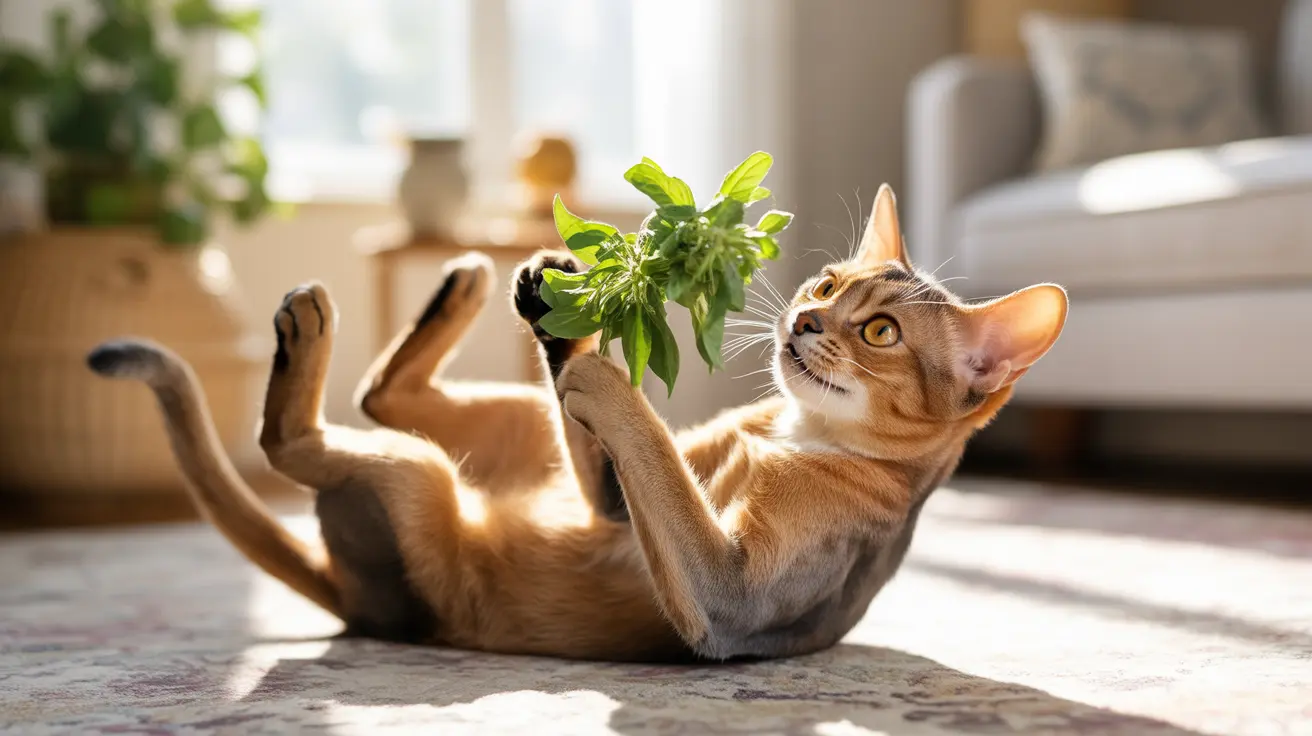If you've ever watched a cat encounter catnip, you've likely witnessed what appears to be a state of feline euphoria. From intense rolling and rubbing to playful bursts of energy, the effects can be quite dramatic. But does catnip get cats high in the same way that drugs affect humans? Let's explore the fascinating science behind this peculiar plant-cat interaction.
Catnip (Nepeta cataria), a member of the mint family, contains powerful compounds that can trigger remarkable behavioral changes in susceptible cats. While these effects might look similar to intoxication, the biological mechanism is quite different from how recreational drugs affect humans.
Understanding Catnip's Chemical Magic
The secret behind catnip's power lies in its active compound, nepetalactone. This natural chemical makes up 70-99% of the essential oil found in catnip leaves and is specifically designed to interact with feline olfactory receptors. When cats smell nepetalactone, it triggers a cascade of responses in their brain's pleasure centers.
Unlike recreational drugs in humans, catnip works primarily through the olfactory system rather than direct brain chemistry manipulation. This makes the experience uniquely feline and far safer than any human intoxicant.
The "High" Experience: What Actually Happens
When cats encounter catnip, they may exhibit several distinctive behaviors:
- Rolling and rubbing against the plant
- Increased vocalization and purring
- Heightened playfulness and activity
- Drooling and head shaking
- Temporary zoning out or apparent relaxation
These effects typically last between 5-15 minutes, after which cats become temporarily immune to catnip's influence. This natural immunity period prevents overexposure and addiction, making catnip a safe recreational experience for our feline friends.
The Science Behind Feline Sensitivity
Not all cats respond to catnip - approximately 50-75% of domestic cats are genetically predisposed to react to it. This sensitivity is inherited as an autosomal dominant trait and usually doesn't emerge until cats are at least 3-6 months old.
Interestingly, the catnip response extends beyond domestic cats to their wild cousins. Lions, tigers, and leopards can also experience similar effects, though individual responses vary widely.
Safety and Benefits of Catnip Use
While catnip does create a euphoric response, it's completely safe for cats when used appropriately. The herb can actually provide several benefits:
- Stress reduction during travel or environmental changes
- Encouragement of exercise and play
- Natural mosquito repellent when rubbed on fur
- Environmental enrichment for indoor cats
Unlike human recreational drugs, catnip is non-addictive and poses no risk of overdose. Even if cats consume large amounts, the worst typical outcome is mild digestive upset.
Frequently Asked Questions
Does catnip truly get cats "high" or is that just a myth?
While catnip does create a euphoric response in cats, it's not technically a "high" like humans experience with drugs. Instead, it triggers a natural behavioral response through olfactory stimulation and neurological pathways specific to felines.
How long do the effects of catnip last on cats before they become immune again?
The immediate effects typically last 5-15 minutes, followed by a temporary immunity period of about 1-2 hours. After this time, cats can respond to catnip again.
Can kittens have catnip, or is it better to wait until they are older?
It's best to wait until kittens are at least 3-6 months old before introducing catnip. Most cats don't develop sensitivity to catnip until after this age, and very young kittens won't respond to it.
Is catnip safe for cats to eat, and are there any health risks if they consume too much?
Catnip is generally safe for cats to eat. While overconsumption might cause mild digestive upset, there are no serious health risks associated with catnip ingestion. When eaten rather than smelled, catnip often acts as a mild sedative.
How often can I give my cat catnip without them developing a tolerance to it?
Cats naturally regulate their catnip exposure and cannot develop a long-term tolerance. You can offer catnip once or twice a week without concerns about diminishing effects. The temporary immunity period prevents overuse.






